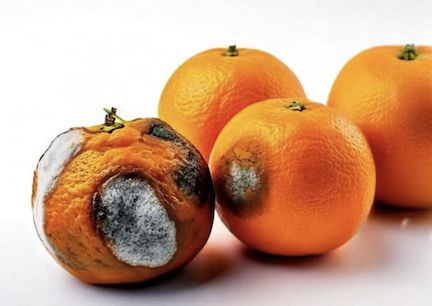Cultivating Empathy
Denmark has been teaching mandatory empathy curriculum to their students aged 6 to 16 since 1993, with pretty impressive results. Currently ranked #2 on the World Happiness Report dashboard, it has consistently ranked among the happiest nations throughout the modern era.

As reported:
Denmark’s empathy program starts at age six in the first year of school and continues until age sixteen. For one hour each week, the children have empathy lessons during ‘Klassens tid’ or ‘The Class’s Hour’. ...
What many people don’t realise is that empathy is a learned skill, and that teaching empathy from a young age has not only been proven to make children more emotionally and socially competent, it also greatly reduces bullying and can also help them be more successful as adults in the future. ...
Any problem is open for discussion and could be personal problems or problems between individual students or groups, anything regarding the school or even unrelated to school. The rest of the class, and the teacher then debate ways to solve the problem. The teacher helps the students by teaching them how to really listen to and understanding others. ...
Klassens tid, is the students’ opportunity to be heard and receive encouragement and inspiration from others through listening and simultaneously learn the importance of mutual respect.
Surely we, in our churches, our classrooms, and our families, could take a page out of Denmark's text book to actively teach the principles of empathy and compasstion. They are, after all, learned behaviors ... and the benefits bode well for the happiness and spiritual health of both the giver and the recipient!
"Bear one another's burdens, and so fulfill the law of Christ" (Galatians 6:2, ESV).
"Rejoice with those who rejoice, weep with those who weep" (Romans 12:15, ESV).
"Be kind to one another, tenderhearted, forgiving one another, as God in Christ forgave you" (Ephesians 4:32, ESV).
"If one member suffers, all suffer together; if one member is honored, all rejoice together" (1 Corinthians 12:26, ESV).
"Put on then, as God's chosen ones, holy and beloved, compassionate hearts, kindness, humility, meekness, and patience" (Colossians 3:12, ESV).
One Bad Apple
"One Bad Apple," a song by the Osmonds, hit the airwaves on November 14, 1970, hitting the top of the Billboard Hot 100 chart on February 13, 1971.
One bad apple don't
Spoil the whole bunch, girl
Oh, give it one more try
Before you give up on love
One bad apple don't
Spoil the whole bunch, girl
Oh, I don't care what they say
I don't care what you heard
Common sense and simple observation tells us one bad apple can, indeed, spoil, the whole bunch. The Osmonds, with their naive, wishful thinking would have liked us to believe otherwise.
So, which is it? Can one bad apple spoil the whole bunch?
Scientists at McGill University had something to say about that:
You bet. Because once an apple is rotten or has physical damage, (ie a bruise), it produces ethylene, which in turn leads to a slightly increased internal temperature causing a breakdown of chlorophyll and the synthesis of other pigments. The starch in the fruit is converted to simple sugars and at the same time, pectin, a component of fiber that cements the cell walls together, begins to disintegrate thereby softening the tissue. Once this happens, it starts a chain reaction, stimulating the process in other apples.
Google's AI bot had a much simpler and to the point answer:
Yes, one bad apple can spoil a bunch of apples because rot spreads through contact.
Whether we're talking apples ...

Or organes ...

Or ...
The company we keep, the fellowship we share, the entertainment we consume, matters. It all matters ... because rot spreads.
Like the wishful thinking in that old hit song, our own wishful thinking would have us to believe that we have it within ourselves to resist the rot. But rot is, if nothing else ... compelling.
Remember that scientific explanation from McGill? "... pectin, a component of fiber that cements the cell walls together, begins to disintegrate thereby softening the tissue." It is an inevevitable process.
We must guard our hearts and minds, lest our Christian testimony, our right thinking, or moral character all begin to "disintegrate" and "soften" overtime.
Remember, "... rot spreads by contact."
"Whoever walks with the wise becomes wise, but the companion of fools will suffer harm" (Proverbs 13:20, ESV).
"Do not be misled: 'Bad company corrupts good character'” (1 Corinthians: 15:33, NIV).
The Creeping Influence of Bad Habits
(The following illustration has applicatoin for both "bad" habits and "good" habits alike. As such, this illustration will appear in the database twice, with alternative applications dealing with both types of habits.)
Bad habits can kind of creep up on you. You're fine. You're handling them. Until ... you're not.
Imagine that you have an ice cube sitting on the table in front of you. The room is cold and you can see your breath. It is currently twenty-five degrees. Ever so slowly, the room begins to heat up. Twenty-six degrees. Twenty-seven. Twenty-eight. The ice cube is still sitting on the table in front of you. Twenty-nine degrees. Thirty. Thirty-one. Still, nothing has happened. Then, thirty-two degrees. The ice begins to melt. A one-degree shift, seemingly no different from the temperature increases before it, has unlocked a huge change. [Effects] are often the result of many previous actions, which build up ... unleash[ing] a major change. This pattern shows up everywhere. Cancer spends 80 percent of its life undetectable, then takes over the body in months. Bamboo can barely be seen for the first five years as it builds extensive root systems underground before exploding ninety feet into the air within six weeks.

Bad habits are a lot like those stealthy bamboo shoots. They seem to be nothing to be worried about. They don't seem to be having any significant impact on your life or well being. Until one day, you can't keep them underground any longer. The negative impacts burst through the surface, and bam! Suddnely you have a 50 foot tall bamboo stalk casting shade over your entire existence.
Don't be duped. Those small, bad habits can turn into serious problems quickly. That is why we are cautioned by Scripture to take mastery over our attitudes and action before they take mastery over us.
"All things are lawful for me, but not all things are helpful. All things are lawful for me, but I will not be dominated by anything" (1 Corinthians 6:12, ESV).
"Do not be deceived: God is not mocked, for whatever one sows, that will he also reap. For the one who sows to his own flesh will from the flesh reap corruption, but the one who sows to the Spirit will from the Spirit reap eternal life. And let us not grow weary of doing good, for in due season we will reap, if we do not give up" (Galatians 6:7-9, ESV).